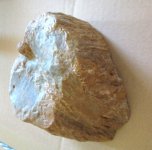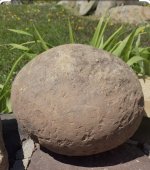KY Hiker
Bronze Member
- Oct 28, 2014
- 1,537
- 3,220
- Detector(s) used
- Whites
- Primary Interest:
- All Treasure Hunting
One shot DID start the conflict...the revolution began with the action at Lexington and Concord. Various taxes and restrictions built up resentments toward the crown. But once the British soldiers were ordered to seize the arms of the colonists and the locals tried to stop that from happening with the stand off or show of force, neither side expected fellow countrymen to shoot at one another. The colonies had petitioned England multiple times for relief, and ultimately never received any. This led to 'taxation without representation' chants and public protests like the Boston Tea party along with several others happened. To this day...it was this action of attempted confiscation of arms as why we have the Second amendment to the constitution. The political left does not usually recognize the roots of this amendment as it has become a political football used to rally support during election years as they cry for gun control.
Last edited:





